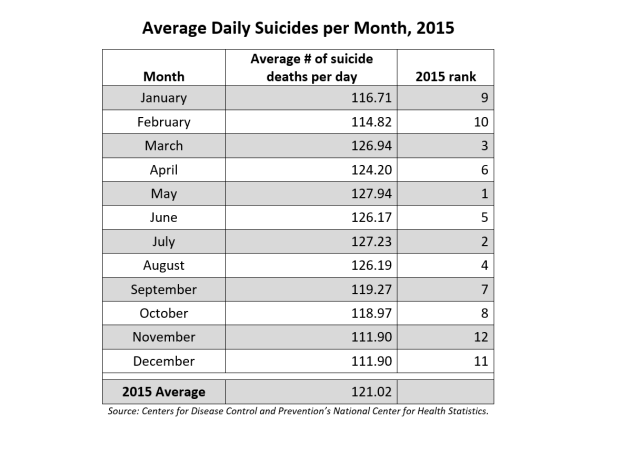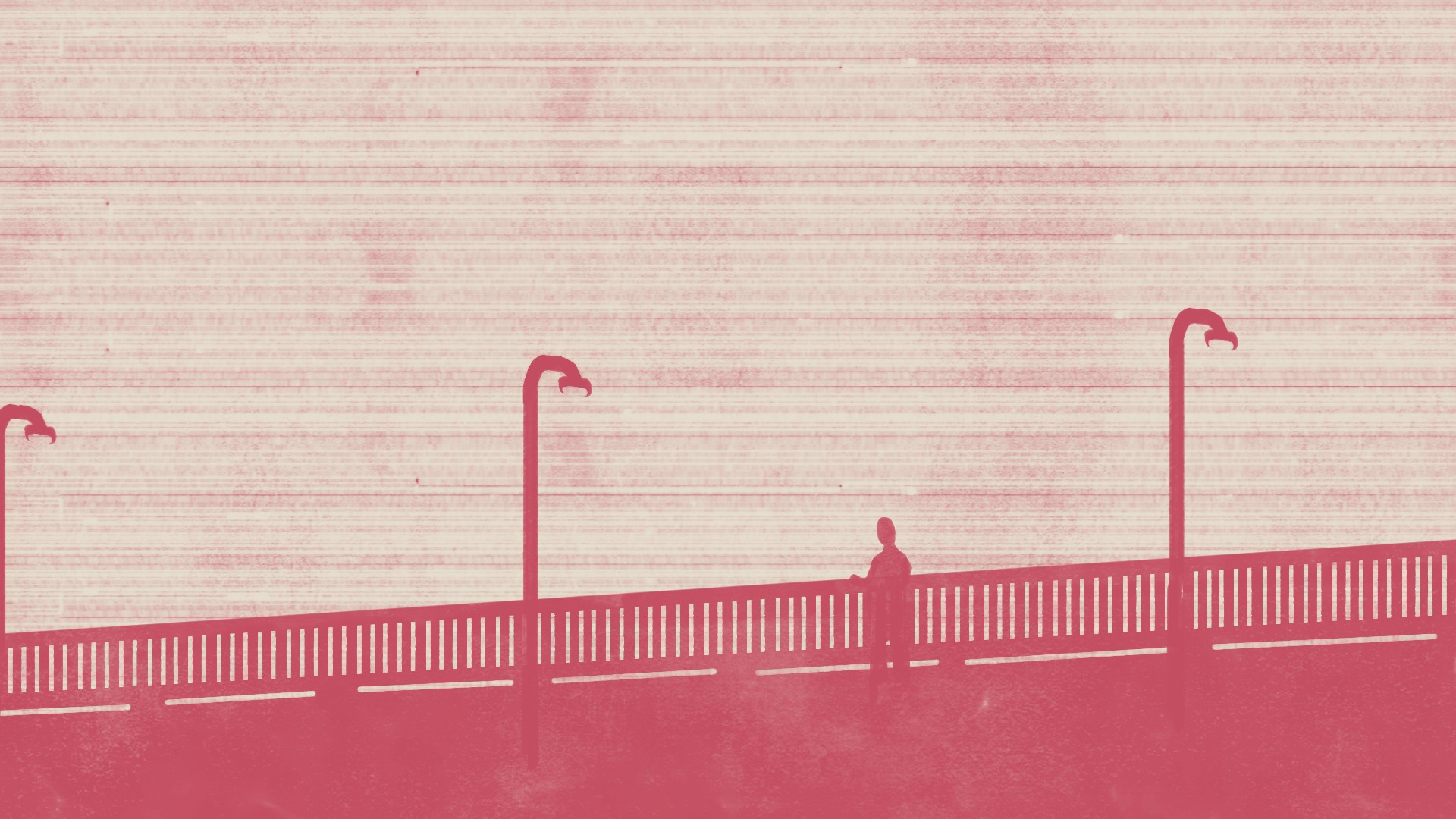Tim Mossholder/Unsplash
There’s something darkly alluring about the myth of the seasonal suicide increase. As the thinking goes, everyone gets stressed out during the holidays, whether because they’re with their families or because they don’t have anyone. It’s easy to imagine that collective psychic strain taking a toll.That assumption is wrong: In fact, fewer people take their lives during holiday months. Yet, according to a new report from the Annenberg Public Policy Center (APPC) at the University of Pennsylvania, the myth of the spike in suicides around the holidays persists—and the media, newspapers in particular, is a major culprit.According to data from the Centers for Disease Control and Prevention (CDC), November and December were the two lowest months in average suicide deaths per day in 2015, ranking 12th and 11th, respectively, while January was ninth. Rather than a suicide spike around year’s end, average daily rates tend to peak in spring and summer—May, July, and March had the highest average daily rates in 2015. (That’s the most recent year for which data is available.) Those are cold, hard facts. The CDC even has a page devoted to debunking the myth. But APPC has tracked news coverage of the suicide myth since 1999, comparing the number of newspaper stories that support the myth versus those that debunked it in the Nexis database. Last year, during the 2016-17 holiday season, 64 percent of newspaper stories linking the holidays and suicide perpetuated the myth, while 36 percent debunked it. In other words, nearly two-thirds of stories repeated a factually incorrect claim. The analysis didn't include stories from online-only outlets but stories found via Google searches for the same keywords during the same time frame found similar pattern.Sadly, last year wasn’t an outlier. For the 18 years APPC has tracked the issue, there have been only two years when more than 60 percent of stories debunked the myth. In the two years previous to the most recent report, debunking stories dominated (though the split was nearly even), only to see suicide-myth stories rebound in 2016-2017.“It’s disappointing to see that this myth hasn’t gone away,” Dan Romer, research director of the APPC, said in a release.
Those are cold, hard facts. The CDC even has a page devoted to debunking the myth. But APPC has tracked news coverage of the suicide myth since 1999, comparing the number of newspaper stories that support the myth versus those that debunked it in the Nexis database. Last year, during the 2016-17 holiday season, 64 percent of newspaper stories linking the holidays and suicide perpetuated the myth, while 36 percent debunked it. In other words, nearly two-thirds of stories repeated a factually incorrect claim. The analysis didn't include stories from online-only outlets but stories found via Google searches for the same keywords during the same time frame found similar pattern.Sadly, last year wasn’t an outlier. For the 18 years APPC has tracked the issue, there have been only two years when more than 60 percent of stories debunked the myth. In the two years previous to the most recent report, debunking stories dominated (though the split was nearly even), only to see suicide-myth stories rebound in 2016-2017.“It’s disappointing to see that this myth hasn’t gone away,” Dan Romer, research director of the APPC, said in a release.
Watch More from Tonic:
According to APPC, the myth is often perpetuated through unchallenged quotes and claims. The report cites a Philadelphia Tribune story, for example, that uses a quote from a man explaining why he dresses up as Santa Claus: “I use Community Claus as a way to meet people [and] reach people because around this time of year suicides are up, people are lonely…”Suicides, again, are not up around this time of year. Repeating the myth doesn’t just leave people misinformed: It can have real effects on people who may be thinking about suicide. “Feature writers and columnists as well as news reporters may mean well when they cite the suicide myth,” Romer said. “But it actually doesn’t help those who may be experiencing suicidal thoughts to tell them that this is the time of year that others are taking their lives. Research has shown that this kind of information can be harmful, and recommendations for reporting on suicide specifically argue against citing trends in suicide that are unsubstantiated or false.”Perpetuating the holiday-suicide myth is one genuinely #fakenews trend that needs to end.If you or someone you know is considering suicide, help is available. Call 1-800-273-8255 to speak with someone now or text START to 741741 to message with the Crisis Text Line.Read This Next: Three Formerly Suicidal People Told Us What Changed Their Minds
Advertisement

Advertisement
Watch More from Tonic:

According to APPC, the myth is often perpetuated through unchallenged quotes and claims. The report cites a Philadelphia Tribune story, for example, that uses a quote from a man explaining why he dresses up as Santa Claus: “I use Community Claus as a way to meet people [and] reach people because around this time of year suicides are up, people are lonely…”Suicides, again, are not up around this time of year. Repeating the myth doesn’t just leave people misinformed: It can have real effects on people who may be thinking about suicide. “Feature writers and columnists as well as news reporters may mean well when they cite the suicide myth,” Romer said. “But it actually doesn’t help those who may be experiencing suicidal thoughts to tell them that this is the time of year that others are taking their lives. Research has shown that this kind of information can be harmful, and recommendations for reporting on suicide specifically argue against citing trends in suicide that are unsubstantiated or false.”Perpetuating the holiday-suicide myth is one genuinely #fakenews trend that needs to end.If you or someone you know is considering suicide, help is available. Call 1-800-273-8255 to speak with someone now or text START to 741741 to message with the Crisis Text Line.Read This Next: Three Formerly Suicidal People Told Us What Changed Their Minds